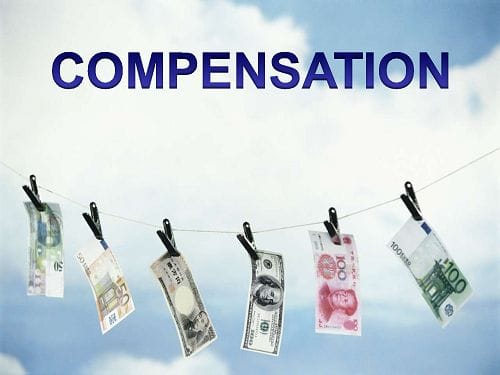
In its recent ruling, the Supreme Court of India has been able to clarify the laws of computing compensation in motor accidents claims wherein, the whole income of the victim that took into account allowances also had to be taken into consideration so that there would be a just compensation to the family. It was in an appeal that was filed by the family of a deceased man who had sought higher compensation compared to the one that had been awarded by the lower courts. This ruling is meaningful in that it is now clear on how income is to be assessed in a similar case in which a broad approach benefits the dependents rather than the technical one.
Facts of the Case
The appellants were the wife and two minor children of a motor vehicle accident fatality of one Lokender Kumar which occurred on February 16, 2009. The family made a claim petition to the Motor Vehicle Accident Claims Tribunal stating that they shall be compensated by an amount of 2,54,720. Disgruntled that they did not receive enough, the claimants approached the Punjab and Haryana High Court which raised the compensation amount to 723,680. The family still felt that the award was not enough and therefore they took the case to the Supreme Court so as to have the award increased further.
Issue Raised
The fundamental question was whether salary allowances like, House Rent Allowance (HRA) should be included in the income of the deceased person to be able to compute compensation in a case involving motor accident.
For any queries or to publish an article or post or advertisement on our platform, do call at +91 6377460764 or email us at contact@legalmaestros.com.
Observations and Judgement
Observing that the compensation amount granted by the High Court was to the lower side, the Supreme Court noted that the Tribunal as well as the High Court refused to allow the allowances of the deceased and only took his basic pay of Rs. 3,665 per month, whereas the salary slip showed his gross monthly income to be Rs. 6,500 per month.
According to the Court, it was a strategy grounded on a hyper technicality and is not right. Based on its earlier decisions, among which is the case of National Insurance Co. Ltd. v. Indira Srivastava, the Court re-affirmed the interpretation of the idea behind ‘income’ as being open to broad interpretation so as to provide just compensation. It mentioned that the perks and benefits that would have been enjoyed by the whole family like HRA may be vital in the determination of the financial loss to the family hence should be added.
As the judgment elucidated, until and unless the same can be proved that it did not result into being profitable to the family, it should still be regarded as the income of the deceased. Using this as a guide, the Court re-computed the compensation on the basis of the full salary of Rs. 6,500 per month. The Court additionally increased awards in the traditional areas such as the loss of consortium and the funeral costs.
For any queries or to publish an article or post or advertisement on our platform, do call at +91 6377460764 or email us at contact@legalmaestros.com.




![Research Assistantship @ Sahibnoor Singh Sindhu, [Remote; Stipend of Rs. 7.5k; Dec 2025 & Jan 2026]: Apply by Nov 14, 2025!](https://legalmaestros.com/wp-content/uploads/2025/11/Gemini_Generated_Image_s0k4u6s0k4u6s0k4-768x707.png)
![Karanjawala & Co Hiring Freshers for Legal Counsel [Immediate Joining; Full Time Position in Delhi]: Apply Now!](https://legalmaestros.com/wp-content/uploads/2025/11/Gemini_Generated_Image_52f8mg52f8mg52f8-768x711.png)
![Part-Time Legal Associate / Legal Intern @ Juris at Work [Remote]: Apply Now!](https://legalmaestros.com/wp-content/uploads/2025/11/ChatGPT-Image-Nov-12-2025-08_08_41-PM-768x768.png)
![JOB POST: Legal Content Manager at Lawctopus [3-7 Years PQE; Salary Upto Rs. 70k; Remote]: Rolling Applications!](https://legalmaestros.com/wp-content/uploads/2025/11/ChatGPT-Image-Nov-12-2025-08_01_56-PM-768x768.png)